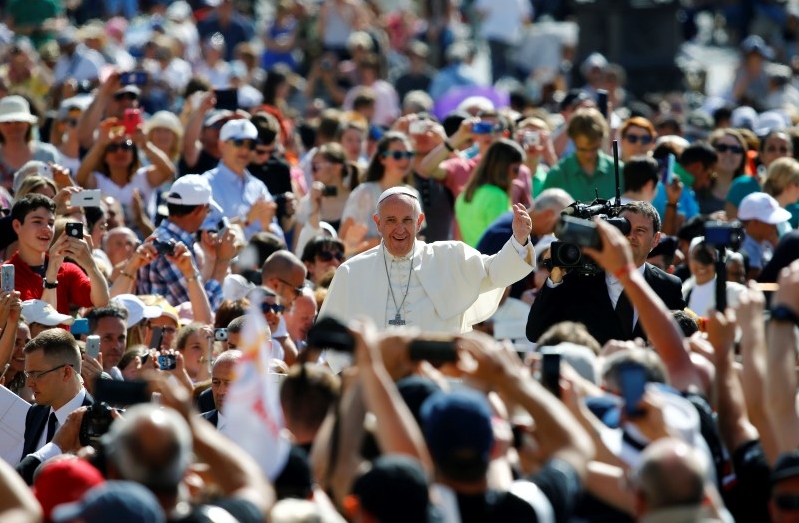
Pope Francis visits Armenia this weekend and will try to avoid reigniting a diplomatic dispute with Turkey after his branding of the 1915 mass killings of Armenians as a genocide infuriated Ankara last year.
During the three-day trip starting on Friday, he will pray at Tzitzernakaberd, known in Armenia as the "Genocide Memorial and Museum" but which the official Vatican program for the trip calls "a memorial of the massacres".
He will have to tread delicately there and in half a dozen other addresses to political and religious leaders.
Last year Francis described the killing of up to 1.5 million Armenians in World War One as "the first genocide of the 20th century", days before commemorations to mark the centenary of the massacres in April.
Muslim Turkey promptly recalled its envoy to the Vatican, Mehmet Pacaci, and he stayed away for 10 months, an eternity in diplomatic terms.
Turkey accepts that many Christian Armenians living in the Ottoman Empire were killed in clashes with Ottoman forces during World War One, but it disputes the figures and denies that the killings were systematically orchestrated and constitute a genocide. It also says many Muslim Turks perished at that time.
In the run-up to Francis's trip, the Vatican has been at pains to avoid the G-word.
"THE GREAT EVIL"
"Why is there an obsession to use the word 'genocide' and ask about it in all the questions?" Vatican spokesman Father Federico Lombardi testily responded to journalists at a briefing on the trip this week.
"We know what happened. None of us is denying that there were horrible massacres. We recognize this. We are going to the memorial precisely to remember this but we don't want this to become a trap of political and ideological discussions," Lombardi said.
Many Western historians use the word genocide to describe the events of a century ago and about a dozen EU countries have infuriated Turkey by passing resolutions officially recognizing the Armenian massacre as a genocide.
Lombardi said he preferred to use the Armenian phrase "Medz Yeghern," which roughly translates as "the great evil" or "the great calamity". This is the formula some world leaders, including U.S. President Barack Obama, have used.
Lombardi rejected a reporter's suggestion that since the pope had used the word genocide last year the Vatican had chosen a policy of "reductionism" to placate Turkey.
As if to fire a warning shot across the Vatican's bow, Turkey's embassy to the Holy See last week held a commemoration of the "martyrdom" of Taha Carim, a Turkish ambassador to the Vatican killed in Rome in 1977 by Armenian gunmen.
Armenia was the first nation to adopt Christianity as a state religion, in 301, 12 years before the Roman Empire granted Christians religious freedom.
The Armenian Apostolic Church, whose leader is known as the "Catholicos", split from Rome over a theological dispute in the fifth century and is part of the Oriental Orthodox Churches. It is seen as the custodian of Armenian national identity.
Only about 280,000 of Armenia's population of around 3 million people are Roman Catholic.
Before returning to Rome on Sunday, Francis is due to visit the Khor Virap monastery in the foothills of Mt. Ararat, near the border with Turkey, and release doves along with Catholicos Karekin II as a symbol of their hopes for peace and reconciliation in the region.
In September, Francis is due to visit two other Caucasus countries, Georgia and Azerbaijan.







